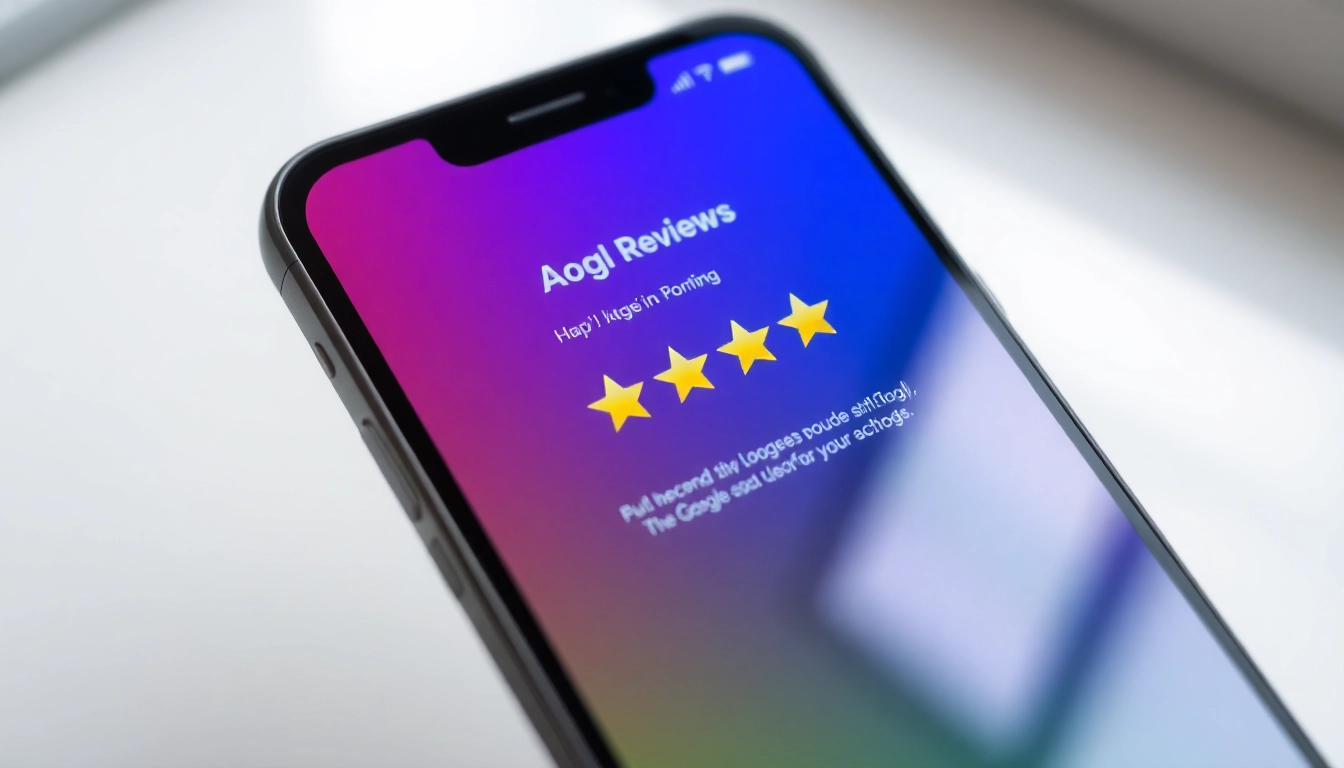Understanding the Importance of Google Reviews for Your Business
In today’s digital landscape, online reviews have become a cornerstone of local business success. Among various review platforms, Google Reviews stand out as a vital tool for establishing credibility, boosting visibility, and driving customer engagement. When consumers search for local products or services, they often turn to Google to read reviews, assess reputations, and make informed decisions. For businesses aiming to strengthen their online presence, understanding the significance of Google reviews is not optional—it’s essential.
Why Google Reviews Matter for Local SEO
Google’s search algorithm incorporates reviews as a significant ranking factor, especially for local SEO. Positive Google reviews improve your business’s visibility on Google Search and Maps, helping you appear higher in local pack results. This positioning translates directly into increased exposure and foot traffic. Research shows that businesses with a higher quantity of positive reviews tend to rank better and attract more local customers. Additionally, reviews contribute fresh, user-generated content, signaling activity and relevance to Google’s algorithms.
Furthermore, reviews enhance your local business’s trustworthiness. Google’s review system provides social proof—vital for consumers hesitant to try new brands. Displaying a collection of genuine, positive reviews reassures prospects about your reliability and quality, integrating seamlessly with your broader SEO strategy.
Impact of Reviews on Customer Purchase Decisions
Customer behavior is heavily influenced by peer feedback. According to multiple studies, over 90% of consumers read online reviews before visiting a business, and at least 84% trust online reviews as much as personal recommendations. Positive reviews act as endorsements, reducing perceived risk and increasing the likelihood of conversion.
Conversely, a series of negative reviews can deter potential customers. Even a few poor ratings may significantly impact your reputation and revenue. Thus, actively managing your Google reviews to ensure a balanced, honest portrayal of your business is critical to maintaining consumer trust and competitive edge.
Common Challenges in Managing Google Reviews
Despite their importance, managing Google reviews presents several challenges. Businesses frequently grapple with fake or malicious reviews, which can distort your reputation. The platform’s system makes it difficult to distinguish genuine feedback from spam or competitors’ sabotage.
Additionally, responding to negative reviews requires tact and promptness. Ignoring critical feedback can hurt customer relationships, while inappropriate responses might escalate issues or attract further scrutiny. The process of requesting reviews ethically without violating Google’s guidelines also presents hurdles, especially in maintaining compliance while striving for volume and quality.
Strategies to Get More Genuine Google Reviews
Creating Easy Review Requests and Links
Simplifying the review process encourages more customers to share their experiences. A practical approach involves creating direct review links or embedding QR codes in physical locations or receipts. For instance, by navigating your Google Business Profile and selecting the “Get more reviews” option, you can generate a unique review URL that directs customers straight to your review form. Incorporate this link into email signatures, SMS follow-ups, or social media posts to make leaving reviews effortless.
Shortening URLs with tools like Bitly can also facilitate sharing, especially on mobile devices. The key is reducing friction—customers are more likely to leave reviews when the process is quick and straightforward.
Encouraging Satisfied Customers to Leave Feedback
The most genuine reviews come from happy customers. Implementing a systematic approach to solicit feedback can significantly boost review volume. Train staff to politely ask satisfied customers to leave reviews at the point of service. Timing is crucial; immediately after a positive interaction—like a successful transaction or resolution—customers are more receptive.
Automate follow-up emails or SMS requests that thank customers and gently prompt them to share their experience. Personalization matters; personalized messages feel sincere and increase engagement rates.
Using Incentives Ethically and Effectively
Offering incentives in exchange for reviews can be tempting but must be approached ethically to avoid violating Google’s guidelines. Non-monetary incentives, such as entry into a raffle or providing small discounts for future visits—assuming the review is honest—are generally acceptable if transparently communicated.
Transparency is critical. Never encourage fake reviews or manipulate feedback. Instead, focus on incentivizing honest reviews and emphasizing your appreciation for genuine customer input.
Managing and Responding to Google Reviews
Best Practices for Responding to Positive Reviews
Showing appreciation for positive feedback reinforces customer relationships and encourages repeat business. Craft personalized responses that acknowledge specific compliments, express gratitude, and invite customers to return. This direct engagement demonstrates that you value their input and are attentive to their experience.
Tackling Negative Reviews Constructively
Negative reviews, though challenging, offer an opportunity for growth and improvement. Always respond promptly, professionally, and empathetically. Acknowledge the issue, apologize sincerely if appropriate, and offer to resolve the matter privately. Publicly demonstrating your willingness to address concerns can turn a dissatisfied customer into a loyal advocate.
Keep in mind, avoid defensive language or arguing online. Instead, focus on solutions and invite the reviewer to contact you directly. This approach not only mitigates damage but reflects positively on your brand.
Monitoring Your Review Profile Regularly
Active monitoring allows you to promptly address emerging issues and gauge the pulse of your reputation. Tools like Google My Business dashboard or third-party review management software can help track review metrics, analyze sentiment, and identify patterns. Regularly checking reviews ensures you respond timely, maintain an accurate business image, and adapt strategies based on customer feedback.
Leveraging Google Reviews to Enhance Your Brand
Showcasing Top Reviews on Your Website and Social Media
Prominently displaying positive reviews on your website builds credibility and influences purchasing decisions. Create dedicated testimonial sections or highlight select reviews with quotes and customer photos. Sharing top reviews on social media platforms amplifies social proof, expands reach, and engages your audience.
Building Customer Loyalty Through Review Engagement
Engaging with reviews fosters a loyal community. Thank satisfied customers publicly, and consider rewarding repeat reviewers to encourage ongoing feedback. Creating a feedback loop cultivates trust and positions your brand as responsive and customer-centric.
Integrating Review Data into Your Marketing Strategy
Analyzing review trends can highlight strengths and uncover areas for improvement. Use insights from reviews to inform product development, staff training, and service enhancements. Incorporating positive testimonials into advertising campaigns and case studies further solidifies your market positioning.
Tools, Tips, and Compliance for Success
Using Google Business Profile APIs for Review Management
Leveraging Google’s Business Profile APIs enables automation of review collection, response, and analysis. This technological integration helps streamline workflows, maintain consistency, and gain deeper insights into customer sentiment metrics.
To utilize these APIs effectively, familiarize yourself with Google’s developer resources, ensure compliance with policies, and prioritize user privacy.
Monitoring Review Metrics and Performance
Set clear KPIs such as review volume, average star rating, and response times. Use analytics tools to visualize trends over time, identify peak review periods, and measure the impact of your review solicitations. Regular monitoring enables data-driven decisions that enhance reputation management strategies.
Understanding Google’s Guidelines to Avoid Penalties
Staying compliant with Google’s review policies is paramount. Prohibited practices include incentivizing fake reviews, posting reviews on behalf of others, or attempting to manipulate ratings artificially. Violations can lead to penalties, removal of reviews, or suspension of your Google Business Profile. Reviewing Google’s guidelines regularly helps maintain ethical practices and ensures long-term reputation health.



